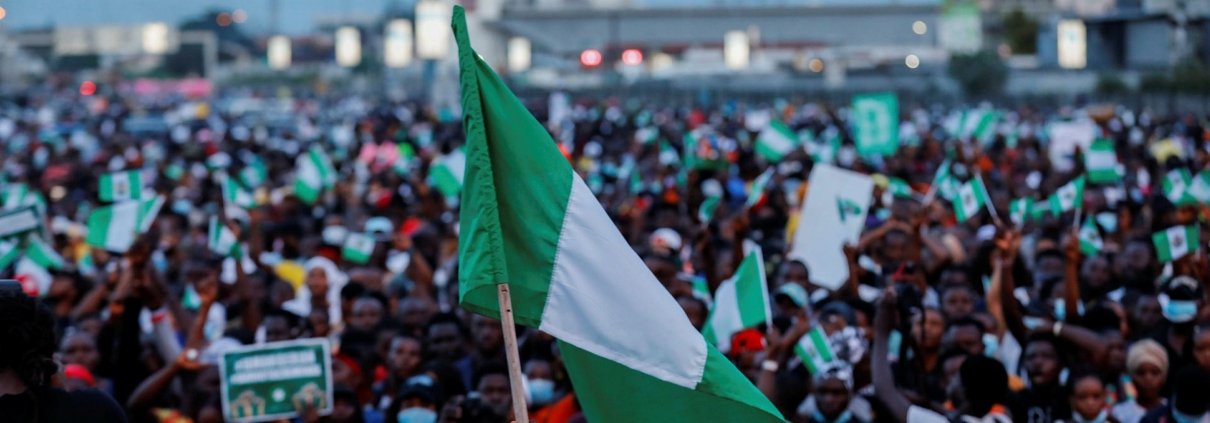#AreteQuarterly – Top 7 threats to Nigeria’s security
The Security Risk Spectrum in Nigeria
Following a recent article by the BBC on the top 5 threats currently facing Nigeria, we have given our on-the-ground view in this article. We will be publishing articles such as this quarterly. Over the last 3 months, we have touched on some of these potential threats already, but in this first #AreteQuarterly we look in even more detail at how these tie together due to common causes, how this could affect travellers or employees in different regions and what you can do to ensure you and your colleagues stay safe.
Nigeria is a large country with the largest population in Africa. Despite the fact that it is the largest economy in Africa, unemployment runs at 32.5%[1] and poverty is widespread through much of the country[2], which if measured against the World Bank’s income poverty threshold of $3.20 per day means 71% of the population is living below the poverty line. These conditions of severe economic hardship generate social stresses that may be pushing people into criminality out of necessity, i.e. they end up committing crime out of need, not greed.
It is important to understand that criminality in Nigeria is dynamic and diverse. No single area of the country – even down to local government areas – presents a homogenous map of criminality. Groups emerge and fade away almost on a weekly basis. They might operate on a very localised basis or, in the case of the more organised crime groups, across administrative boundary lines. Criminal groups are territorial and will fight one another for control of the areas with the richest pickings.
There are also established linkages between various social groupings and crime, with organisations such as the National Union of Road Transport Workers and the numerous confraternities being regularly linked to various criminal activities. Corruption and nepotism also facilitate crime, creating a permissive environment where criminals operate under the umbrella of their patrons who provide the ‘top-cover’ that protects gangs from the forces of law and emboldens them.
The final factor that contributes to high levels of insecurity is the massive overstretch and under-resourcing of the police and other law-enforcement agencies. The security agencies strive to bring criminals to court but are often frustrated when the judicial system appears unable to convict or to award punitive sentences that would deter others.
Geographically, the areas of highest risk – those with the greatest number of reported incidents – are the north-western states of Kaduna, Niger, Zamfara and Katsina, where banditry and kidnapping are the principal threats. Borno State in the north-east still suffers a high number of security incidents, with at least 95 major incidents reported in 2021 to date, the vast majority of which are terrorist in nature. The Niger Delta region is the next most predated area of the country, with Imo, Delta, Edo and Rivers the most affected. The commercial capital of the country, Lagos, suffers a lower but steady rate of criminality. Ikorodu Local Government Area is the most lethal part of the state.
It is instructive to look at various aspects of the risk spectrum individually, as they morph continually and present the security forces with an ever moving and changing target array. However, it must also be stressed that figures quoted by all sources are incomplete as many incidents go unreported.
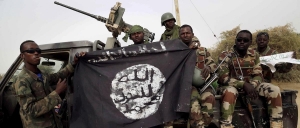
Terrorism
The jihadist insurgency in north-east Nigeria has seen several evolutions since the inception of Boko Haram in 2002. The almost two decades since then have seen the Islamist group fade after its original leader died in police custody in 2009. However, it bounced back with increased capability and capacity in 2012, following which it captured and controlled most of Borno State and adjacent areas of neighbouring states, forming the caliphate that Boko Haram aspires to. That resurgence saw the group fracture into smaller groups, including Ansaru, which evolved into the Islamic State in the West African Province. Currently, Boko Haram is undergoing another split following the killing of its leader, Abubakar Shekau, in a suicide bombing attack in May 2021.
The insurgency has displaced more than 2.3 million Nigerians, triggering a humanitarian crisis and a worsening case of food poverty that impacts beyond the areas immediately affected by the insurgency.
The various groups have different aims – the core of Boko Haram wants a unitary Islamic state in Nigeria with assimilation of territory in neighbouring nations. ISWAP has a broader Islamist agenda that aims to create a much larger Islamic caliphate across the Sahel and sub-Sahelian regions of West and Central Africa. Both these major groups use classic insurgency tactics of attacks on security forces, intimidation of the local population, extortion and kidnap for ransom to raise funds and also imposition of levies/taxes on local communities. Foreigners, particularly westerners, are prime targets for abduction and murder, with international aid organisations also targeted in an effort to hinder their operations and prop up the local population’s dependency on the ‘benevolence’ of the jihadis.
While the government security forces continually claim to have defeated Boko Haram, the insurgency persists. Furthermore, while it is true Boko Haram may be losing some of their influence (there are credible reports of hundreds of fighters surrendering in recent weeks), their hard-core members will likely have aligned with ISWAP and will continue the fight. ISWAP will likely continue to focus on attacking security forces and international targets, with the latter requiring robust security packages and a healthy philosophy towards risk acceptance in order to continue to operate in North-eastern Nigeria.
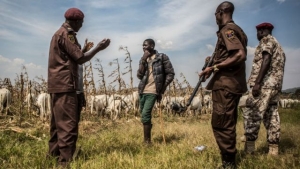
Banditry
Numerous commentators have linked the jihadism with the perennial conflict between pastoralist Fulani herdsman and arable farming communities. There are some shared characteristics, but the herdsmen are simply perpetuating a behaviour that is almost as old as the grasslands they graze. The migratory herds follow the grass, encroaching further south as the dry season progresses. It is an eternal dynamic that is found throughout the Sahel and sub-Sahelian regions of West, Central and East Africa. Whilst it is technically wrong to classify these groups as terrorists, the nature of some of their attacks are almost identical to those of true terrorist groups that follow a political or faith-based goal.
Other bandit groups are prolific in the north-west of the country, specifically in Kaduna, Niger, Zamfara and Katsina States. Several arterial routes through this region present extremely high levels of risk for travellers including the commercially vital route between Abuja and Kaduna.
Bandit groups operate illegal roadblocks and checkpoints from where they conduct robbery operations and opportunistic kidnappings of people perceived to be of wealth or high status. This type of activity presents a particular threat to business travellers unless they travel with a large, heavily armed escort team. Thus, air travel is preferred and the advised means of travel in this part of the country. Other bandit tactics include raids on rural communities where they conduct looting and mass kidnapping operations. This presents a lower level of threat for international employees/travellers, but can impact on workforces for agricultural, power and mining projects led by international companies.
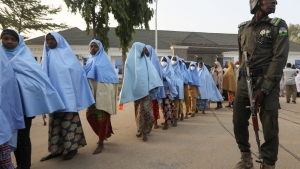
Kidnapping
The “kidnapping industry” in Nigeria has expanded massively in the last 6 years. Previously a significant threat in the Niger Delta and, to a lesser extent Lagos, kidnapping is now widespread and common throughout the country, with the rate of incidents and the number of victims per incident constantly increasing. Geographically, the North-West, North-East and Niger Delta are the most prolific areas for kidnapping, with the highest numbers occurring in the North-West. The raison d’etre behind the kidnapping threat also varies according to location and group. In the South-South, most groups are driven purely by pecuniary considerations. They tend to operate as closed groups, with the entire operation carried out from within a small circle of knowledge and using established infrastructure and methodologies. Kidnappings in the South-South and other parts of the southern half of the country tend to be more targeted and organised, with the gangs conducting relatively sophisticated reconnaissance and pattern of life studies before the snatch occurs.
In the North-West, by comparison, the attackers are more likely to be loose groupings of bandits who sometimes will carry out only part of the operation – some snatching the victims, others holding them and others conducting the ransom dialogue. Often in the north of the country, schools are targeted in mass-kidnapping events. This is probably driven by an economy of effort and the knowledge that the pupils will mostly come from privileged families who have money. Young women and girls are vulnerable to forced marriage in such instances.
Currently, the kidnapping graphs are all showing steep increases across the country and will remain a major threat to personnel for the foreseeable future. This is unlikely to change, even in the face of an increasing number of states adopting the death penalty of kidnappers.
Kidnapping presents a significant threat to international employees, indigenous executives and notable persons within society. For those who fall into these groups, consideration should be given to the use of private security and armed protection teams. This must be accompanied by a thorough understanding of the threat, up to date intelligence and a high level of application of personal security best practices.
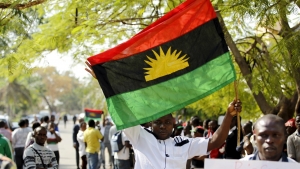
Separatism
The South-East is gripped by a separatist crisis generated by the Indigenous people of Biafra (IPOB), whose aim is to create an autonomous or independent state of Biafra (see our previous article here). The aim is widely supported among the Igbo people of the region, but that support is far from universal, with many feeling that IPOPB attracts unwanted attention from the security forces who interfere with normal commercial life and rhythms of society in the region. Imo State is the most affected by the separatism, with Orlu Local Government Area becoming the epicentre of attacks by the so-called ‘unknown gunmen’ and reprisal operations mounted by the security forces.
This challenge does not target international personnel directly, but the risk of being in the wrong place at the wrong time is significant in such a high tempo environment.
It is likely that the separatists will step up their attacks while the leader of IPOB, Nnamdi Kanu, remains in custody (link to our previous article). If Kanu is convicted and jailed, they will mount a campaign to keep his name in the media spotlight and also increase their attacks on security forces as they attempt to demonstrate their resilience and determination to achieve their aims.
In the South-West, the nascent Yoruba Nation movement, led by Sunday Adeyemo, known as Igboho after his place of birth, is gaining attention following the arrest of Adeyemo and his ongoing detention in Benin Republic. He has a history of agitation and involvement in disorder going back to 1997 and there is a strong streak of ethnic bigotry and Yoruba supremacy running through his rhetoric and previous actions. The Yoruba Nation is agitating for an independent Yoruba state in the South-west which will see it control the commercial hub of Lagos and major international trading routes along the West African littoral.
It is likely that the Yoruba Nation will continue to agitate through the medium of protests and rallies rather than take up arms as IPOB has in the east. These activities are unlikely to present a direct threat to international personnel or operations, but the ethno-nationalist tendency in their manifesto could lead to localised violence against indigenous employees from other tribes and ethnic groups.
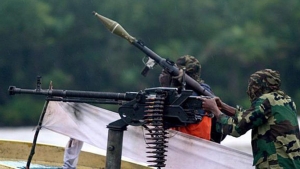
Oil Militancy
Oil militancy emerged in the Niger Delta in 2006. An armed insurgency carried out primarily by the Movement for the Emancipation of the Niger Delta (MEND) saw oil exports and revenues more than halved during the three-year campaign that led to the October 2009 Presidential Amnesty Program. The insurgency was by no means homogenous, with numerous groups that affiliated with the MEND and in some cases which competed and clashed with MEND.
Following the amnesty, and the retirement (or deaths in some cases) of most of the major militant leaders, there followed a period of relative stability until 2016, when the Niger Delta Avengers burst onto the scene with a series of high profile and high impact attacks on key nodes in the region’s pipeline infrastructure (see our previous article on the recent threats made by the NDA). The following 12 months saw numerous groups emerge, with the number peaking in late 2016 with a total of at least 58 groups declaring their existence. Many of these groups had no real capability to mount attacks and were simply opportunists wanting to take advantage of any further round of amnesty payments, however some had clear capacity and capability to severely disrupt oil and gas (and shipping) operations in the region
Throughout the period since the 2009 amnesty, pipelines in the region have been ravaged by relentless hot-tapping operations and industrial scale theft of crude oil and condensate. Illegal refineries were found throughout the region, causing immeasurable environmental damage and economic loss to the oil companies whose product was being stolen and the communities whose land and waterways were being destroyed by pollution.
An interesting development is the emergence of a new group calling itself the Movement for the Emancipation and Defence of Niger Delta, MEDND[3]. This group issued a warning that they would avenge the death of any person killed in Delta State by herdsmen. The group appears to have the backing of the Ijaw kingpin, Chief Edwin Clarke, who was intimately associated with MEND in its day. He is currently the leader of Southern and Middle Belt Leaders Forum, SMBLF.
Oil militancy is closely associated with sea piracy (see below), with groups operating in both capacities out of the same camps. The oil militants regularly threaten international companies’ operations in the region, usually with a warning that personnel are not the target and should be evacuated before a given deadline. There is little doubt that certain groups are present in the region whose threats are more than empty rhetoric and retain the capacity and intent to carry out attacks. Threats published by militant spokesmen and warnings gained through credible intelligence sources should always be treated with great caution and the requisite risk reduction measures implemented as necessary.
Oil militancy will not go away in the near future. The cartels stealing the crude and condensate make millions of dollars per month from their illicit activities. They enjoy the patronage of men of influence who provide top-cover, and this has led to a situation where a status quo has been reached. Thus, the flow of money – and from it power – into the region through illegal activities is likely to persist as long as the oil reservoirs remain productive.
Sea Piracy
The Gulf of Guinea is currently recognised as the most high-risk area for mariners anywhere in the world. The situation grew out of the oil insurgency in the first decade of this century and it has evolved into a highly efficient operation that generates millions of dollars every month through hijacking, extortion, armed robbery and kidnapping on the high seas. Virtually all piracy in the region is linked to Nigeria and the majority to the coastal and swamp areas of the Niger Delta.
The gangs have, over the years, proven to be resilient and adaptable. They now enjoy the advantages of operating over a huge area, with their operations now being mounted from mother ships that hunt their victims up to 200 nautical miles from nearest landfall. This creates a massive challenge for the region’s navies, who suffer from lack of integrated intelligence gathering and response capability. Additionally, they seem able to adapt to any initiative mounted by the Nigerian Navy, and others in the region, whereby they simply change their modus operandi or operating footprint.
An example of this is seen in the last two years, when we have seen the emergence of groups that have developed the capacity to hold kidnap victims at sea, either on mother ships or vessels that have been hijacked – sometimes apparently for the sole purpose of holding a number of kidnap victims.
This threat remains potent and real for mariners operating in the region. It is hoped that the Deep Blue project will have a positive impact, but regional cooperation and a more pragmatic approach to the use of private security will enhance any advantage gained from Deep Blue.
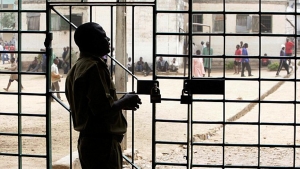
Petty Crime
Street crime, burglary, theft from motorists and motor vehicles and armed robbery are endemic in the urban areas of Nigeria. These crimes are driven largely by desperation and need rather than acquisitive greed.
Petty crime will never go away in Nigeria (or any other country) and the only thing personnel can do is to educate themselves about the risks and the strategies they can adopt to reduce their profile and the attendant likelihood of being victimised.
Summary:
Clearly there are a multitude of threats and associated risks to businesses and individuals working and visiting Nigeria, however as with all risks these can be mitigated through the adoption of appropriate risk mitigation measures. As a highly accredited, professional risk management company, Arete is able to provide whatever support is necessary to ensure your safety and security and to protect you from physical, financial and reputational loss.
[1] https://www.statista.com/statistics/1119227/forecasted-unemployment-rate-in-nigeria/
[2] https://theconversation.com/nigerias-poverty-profile-is-grim-its-time-to-move-beyond-handouts-163302
[3] https://www.vanguardngr.com/2021/06/militants-reply-herdsmen-vow-to-repel-attacks-on-delta/

